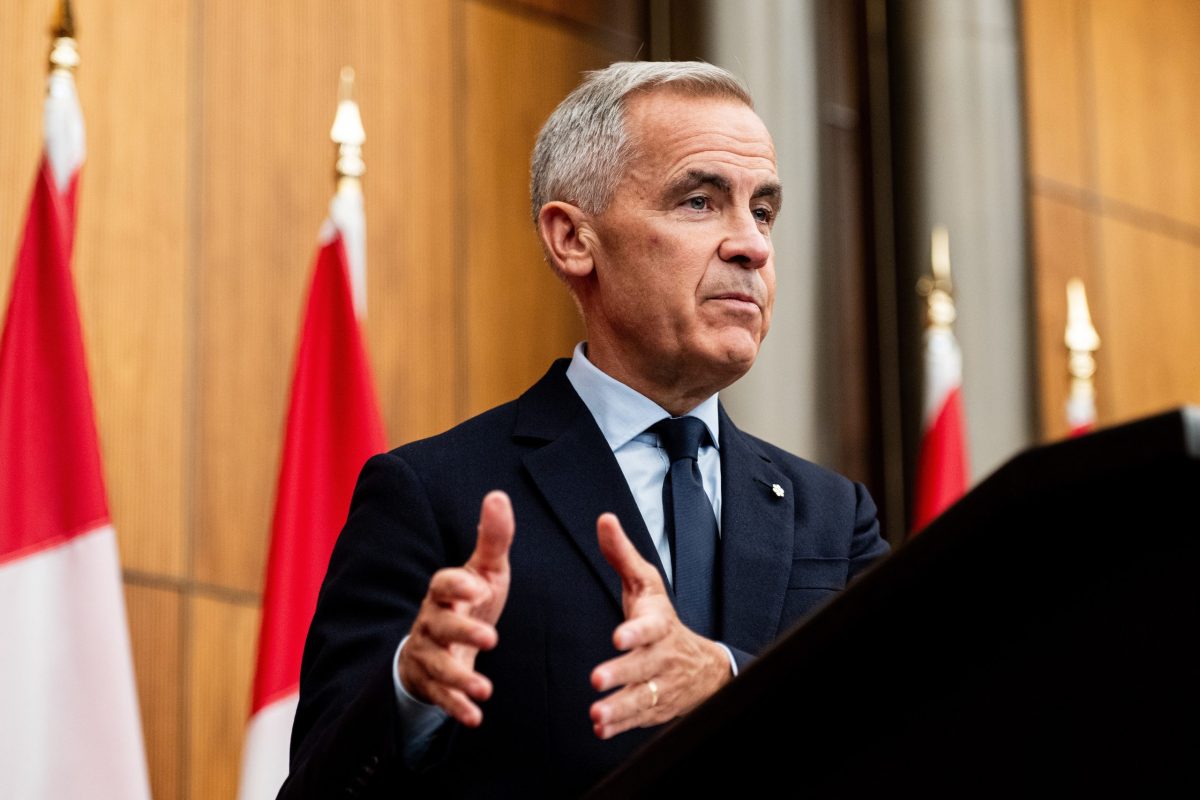It’s hard to ignore the irony.
Manitoba’s NDP government keenly endorses collective bargaining rights, but the province’s utility won’t negotiate with a group of landowners over a contentious power line, says Jurgen Kohler, who farms near Brunkild, Man.
Kohler is one of approximately 120 producers in southern Manitoba who are refusing to sign right of way agreements with Manitoba Hydro. The crown corporation is planning to build Bipole III, a transmission line from northern hydroelectric dams to Winnipeg. The utility has attempted to reach agreements with individual farmers, with one-time payments for easements and the towers built on privately owned land.
Read Also

Canada lifts several import tariffs on U.S. goods as talks continue
Starting September 1, Canada will adjust its tariffs on agricultural products, consumer goods and machinery, Prime Minister Mark Carney announced at a press conference in Ottawa on Friday.
Kohler and the other landowners are not interested in individual agreements. They engaged the Canadian Association of Energy and Pipeline Landowner Associations to negotiate on their behalf, but Hydro has rejected the idea of group negotiations.
“For 14 months now we’ve been trying to get Manitoba Hydro to sit down with us and negotiate. They’ve just ignored us,” said Kohler, who farms east of Carman, where land values can exceed $2,500 an acre.
In November Manitoba Hydro said it wanted to have Bipole III in operation by 2018 and claimed to have reached agreements for 90 percent of the line.
In December, the utility sent a letter to Kohler and dozens of other farmers informing him that his land would be expropriated.
On January 20 at Ag Days, the annual trade show in Brandon, Kohler reached out to Manitoba’s agriculture minister for help.
“Youre government and your party is a strong defender of collective bargaining,” Kohler said to Ron Kostyshyn, following the minister’s presentation at Ag Days. ” We view this as the same concept. We want to collectively bargain for a good agreement that protects that future of our family farms.”
Kostyshyn promised to discuss the matter with Kohler and Eric Robinson, the minister responsible for Manitoba Hydro.
“I definitely will advocate for farmers and producers,” Kostyshyn said during a media scrum. “As I indicated to the landowner, I will talk to Mr. Robinson and will get together with the landowner to have some further discussions.”
Kohler said he wants an agreement that protects his land from bio-security risks, such as clubroot, and clearly defines his liability risk.
“To me, the liability issue is the most important one. I don’t want to find out later that I (am) liable for something,” he said.
As an example, what happens if a farmer drives into a transmission tower, Kohler asked.
“Right now, when I hit one of those skinny hydro poles … I’m being charged $10,000 because Hydro will have to come out and replace the pole.”
Doug Chorney, Keystone Agricultural Producers president, said the affected farmers simply want an opportunity to negotiate the best possible deal.
“There’s a recognition that there’s going to be a Bipole built, but that compensation rates are fair and the encumbrances on farming are minimized.”
While expropriation is now on the table, Kohler said there is still time for a negotiated settlement that benefits farmers and Manitoba Hydro.
“That’s why we’re appealing to the minister of agriculture to help us because Hydro simply won’t acknowledge us.”
robertarnason@producer.com

















